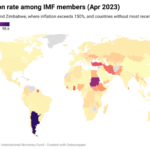The approval of Bluebird Bio’s gene therapy for sickle cell disease has led to a sharp decline in stock value
- Bluebird Bio stock has plummeted about 50% since FDA approval for its gene therapy for sickle cell disease
- The stock dived another 44.5% after the company announced a public offering to raise $125 million
- Bluebird’s cash problems and complex gene therapies contribute to its struggles
- The company did not receive a priority review voucher, leading to the need for a stock offering
- The warning label and higher price of Bluebird’s gene therapy put it at a disadvantage compared to competitors
Bluebird Bio’s stock has experienced a significant decline following the FDA approval of its gene therapy for sickle cell disease. The stock has plummeted about 50% since the approval, and the company’s announcement of a public offering to raise $125 million triggered another 44.5% drop. Bluebird Bio’s struggles can be attributed to its cash problems and the complexity of its gene therapies. The company did not receive a priority review voucher, which led to the need for the stock offering. Additionally, the warning label and higher price of Bluebird’s gene therapy put it at a disadvantage compared to competitors. These challenges have contributed to the decline in stock value and raise concerns about the company’s future prospects.
Public Companies: bluebird bio (BLUE), SPDR S&P Biotech ETF (undefined), Novartis (undefined), Vertex Pharmaceuticals (undefined)
Private Companies:
Key People: Mani Foroohar (Leerink partners analyst), Andrew Obenshain (bluebird CEO)
Factuality Level: 6
Justification: The article provides information about bluebird bio securing FDA approval for its gene therapy for sickle cell disease and the subsequent decline in the company’s stock price. It also discusses the challenges faced by small- and midsize biotechs and the cash problems of bluebird bio. The article includes quotes from analysts and provides details about the company’s financial situation. However, it does not provide a balanced perspective and focuses more on the negative aspects of bluebird bio’s situation. The article also includes some speculative statements and does not provide a comprehensive analysis of the industry or the company’s prospects.
Noise Level: 3
Justification: The article provides relevant information about bluebird bio’s stock decline after securing FDA approval for its gene therapy for sickle cell disease. It discusses the company’s cash problems, the lack of a priority review voucher, and the challenges it faces in commercializing its gene therapies. The article also mentions the warning on the drug’s label and the higher price compared to a competitor’s therapy. However, the article lacks scientific rigor, intellectual honesty, and actionable insights. It does not provide a thoughtful analysis of long-term trends or possibilities, nor does it explore the consequences of decisions on those who bear the risks. Overall, the article contains some relevant information but lacks depth and analysis.
Financial Relevance: Yes
Financial Markets Impacted: The article mentions the impact on bluebird bio’s shareholders and the stock price decline.
Presence of Extreme Event: No
Nature of Extreme Event: No
Impact Rating of the Extreme Event: No
Justification: The article discusses the financial impact on bluebird bio and its shareholders due to the decline in stock price after the FDA approval of its gene therapy for sickle cell disease. There is no mention of an extreme event.
 www.marketwatch.com
www.marketwatch.com 





